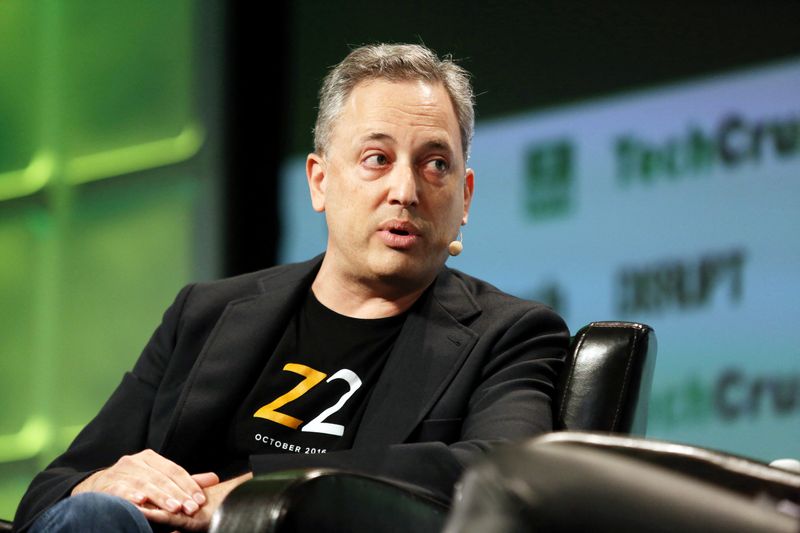
Written by Hannah Lang and Michelle Price
WASHINGTON (Reuters) – U.S. President-elect Donald Trump's crypto policy is taking shape with the announcement of a White House crypto czar and a new securities watchdog, but who will drive it and who will be the cook? The question remains whether too much will delay change.
President Trump appeared to make good on his campaign promise to be the “crypto president” on Thursday, naming former top PayPal (NASDAQ:) executive and crypto evangelist David Sachs as the “White House AI and crypto czar.” announced that he would be appointed. The day before, President Trump announced that he would nominate Paul Atkins, a Washington state attorney who is pro-cryptocurrency, to head the Securities and Exchange Commission.
Crypto industry executives welcomed the news, saying the pair would end the Biden administration's crypto crackdown and encourage innovation, but some Washington analysts said they would be willing to take on the new role of crypto czar. said the creation of “Cryptocurrency Policy'' has created ambiguity over who will drive crypto policy, raising alarm over the policy's potential. collide.
“One of the big questions is whether that policy will be driven by Sacks himself. The czar appointed by Trump will want to see change pretty quickly, but the SEC has a process and will direct the SEC. You can't introduce new policies by ringing the bell.'' Rules apply,'' Ian Katz, managing director at Capital Alpha Partners, said in an email to Reuters. “Personality is going to be important,” he added.
Sachs, a Silicon Valley venture capitalist and friend of President Trump supporter Elon Musk, was an early Bitcoin investor. In a 2017 interview with CNBC, he said that cryptocurrencies are revolutionizing the internet, but acknowledged that there are also scammers in the field. He does not appear to have any experience writing or leading policy, according to a Reuters background check.
Meanwhile, Atkins, a former SEC official and respected veteran of Washington policy circles who supports cryptocurrency innovation as a way to increase competition in financial services, is the founder of consultancy Patmac Global Partners (NYSE: ).
“Mr. Atkins is kind of a known figure,” said Leanne Powell, senior legal analyst at financial consultancy Wolters Kluwer (AS). Saxophone comes from “another realm.”
Both parties are calling on regulators to be more flexible with crypto companies, including whether and under what circumstances they consider crypto tokens to be securities, commodities, or public utilities. It appears that they have not taken a position on whether it is considered a product or a public utility. This is the core issue that will ultimately determine how the industry is regulated. .
“I think we could do with more constructive regulation, and obviously that includes (a) clarification of what security is and isn’t,” said Cryptocurrency compliance firm Solidus Labs. said Chen Arad, co-founder of.
Mr. Atkins and Mr. Sacks did not respond to requests for comment.
The world's largest cryptocurrency is set to hit $100,000 for the first time after President Trump announced Atkins will be nominated to lead the SEC, boosted by expectations that the new administration will introduce more flexible crypto policies. It skyrocketed beyond the milestone of .
Under President Joe Biden, the SEC has charged dozens of crypto companies with violating securities laws, while banking regulators have blocked lenders from dabbling in cryptocurrencies and Congress has announced Failed to pass legislation promoting currency adoption.
The crypto industry is pursuing a number of ambitious policies to accelerate the adoption of digital assets, including the creation of a crypto regulatory framework that addresses when tokens are classified as securities or commodities.
In a Thursday post on his Truth Social platform, President Trump said Sachs would “guide” crypto policy and “work on a legal framework to ensure the crypto industry is…clear” and that Sachs will be the next… It is unclear whether he will lead the administration's virtual currency policy.
It is also unclear whether Mr. Sachs will lead President Trump's Cryptocurrency Advisory Board, which is also expected to play an important role in shaping crypto policy. Reuters previously reported that the crypto czar is expected to lead the agency and coordinate policies between various regulators.
Lawyers say the legal framework for cryptocurrencies will require extensive input from the SEC and the Commodity Futures Trading Commission (a new chair has not yet been announced), and may also require approval from Congress. Therefore, the adjustment is extremely important.
Regulations on less controversial non-cryptocurrency issues, such as bank proprietary trading and capital, have long been muddled by interagency disputes, they noted.
“There's definitely going to be a lot of cooks,” Powell said.
In an email Friday, Trump's transition press secretary reiterated the president-elect's Thursday announcement that Sachs would guide crypto policy, but Reuters asked for details on how that role would work. did not answer the question.
Some consumer advocates have expressed concern that the Trump administration's crypto policies will create a gap that puts investors at risk, but the industry has largely dismissed these concerns.
“I don't think there's going to be underregulation,” said Anthony Scaramucci, founder of the asset management firm Skybridge, who briefly served in the first Trump administration. “I don't think it will create fraud, but I think it will help the United States maintain what it believes to be its financial services leadership mandate.”


